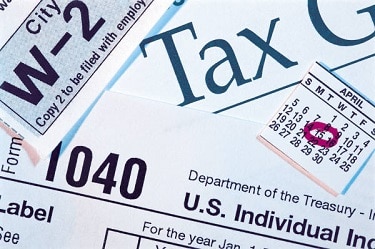Author: Paul J. Beckert M.B.A., C.P.A., Pinnacle Business Solutions L.L.P.
In recent weeks, there has been plenty of discussion about regulatory changes, taxes, and so much more. At both the federal and state levels, the tax filing deadlines have been extended to July 15.
Beyond that key change, there are a few things that all small business owners should be taking advantage of these new provisions in the Internal Revenue Code to lower their tax liabilities.
- Qualified Business Income Deduction
Effective January 1, 2018, in the case of a taxpayer other than a C Corporation there shall be a deduction with respect to any qualified trade of business of an amount equal to the lessor of 20% of the taxpayer’s qualified business income or the greater of:
- 50% of the W-2 wages of the qualified business
- The sum of 25% of the W-2 wages of the qualified business plus 2.5% of the unadjusted basis immediately after acquisition of qualified property
It’s important to note that the W-2 limitations listed above do not apply to any taxpayer whose taxable income for the year does not exceed $321,400 for those who are Married Filing Jointly (M.F.J.) or $160,700 for those who are filling single. The W-2 limit applies fully for a taxpayer whose taxable income is in excess of the threshold amount by $100,000 MFJ, or $50,000 single. Also, note that if your business is a Specified Service Trade or Business (i.e. Health, Law, Accounting, Financial Services) and your taxable income exceeds $421,400 MFJ or $210,700 single, you no longer qualify for the deduction.
- Section 179 Expense Limitations and Modifications
The maximum amount of qualified property a taxpayer can elect to expense under sections 179 is increased from $1,000,000 in 2018 to $1,020,000 in 2019. Furthermore, the deduction limit or phase-out began at $2,500,000 in 2018. This limit is increased to $2,550,000 in 2019. The Section 179 limit for S.U.V.s, Trucks, Vans over 6000 pounds GVWR is $25,000. A truck or van that is a qualified non-personal use vehicle is not subject to the annual depreciation limit. Qualified property is property acquired by purchase for use in the active conduct of a trade or business such as equipment, off the shelf software, or automobiles.
- Bonus Depreciation
Taxpayers are required to take additional first-year special depreciation allowance for certain qualified property. This deduction is calculated after taking any Section 179 and before any regular depreciation deduction. This additional depreciation taken on any new or used property is held at 100% from 2018 to 2022. This increased deduction also applies to Longer Production Period Property and Certain Aircraft. After 2022, the deduction is reduced 20% points each year until it reaches 0% for qualified property and 20% for Longer Production Period Property and Certain Aircraft in 2027. The additional first-year bonus depreciation for vehicles purchased after September 27, 2017, remained at $8,000 for 2019. Qualified property is property acquired by purchase for use in the active conduct of a trade or business such as equipment, off the shelf software, or automobiles.
- Qualified Opportunity Funds
This new tax provision provides an effective deferral mechanism for short and long-term capital gains from current investments in nearly all asset classes, including stocks and other securities. Unlike Section 1031 “like-kind” deferral, qualified opportunity zones will provide: (i) the ability to invest only the gain rather than the entire current investment, (ii) a broader range of investments eligible for the deferral, (iii) a potential basis step-up of 15 percent of the initial deferred amount of investment, and (iv) an opportunity to abate all taxation on capital gains post-investment.
The new provision allows taxpayers to defer the shortterm or long-term capital gains tax due upon a sale or disposition of property if the capital gain portion of the sale or disposition is reinvested within 180 days in a “qualified opportunity fund.” A “Qualified Opportunity Zone Fund” is a corporation or partnership that invests at least 90 percent of its assets in qualified opportunity zone property. A Qualified Opportunity Zone is a population census tract that is a low-income community that is designated as a qualified opportunity zone. The governor of each state and the U.S. Treasury Department certify the qualified opportunity zones within a state. In Arizona, portions of Phoenix, Scottsdale, Glendale, Tempe, and Mesa have been designated as Opportunity Zones.
- Business Meals and Entertainment Expenses
Effective January 1, 2018, businesses may no longer deduct expenses generally considered to be entertainment, amusement or recreation, membership dues with respect to any club organized for business, pleasure, recreation, or other social purpose or a facility used in connection with any of the above. Taxpayers may continue to deduct 50% of the cost of business meals if the taxpayer (or an employee of the taxpayer) is present, and the food or beverages are not considered lavish or extravagant. The meals may be provided to a current or potential business customer, client, consultant, or similar business contact. Food and beverages that are provided during entertainment events will not be considered entertainment if purchased separately from the event.
Pinnacle Business Solutions is a CPA firm located in Scottsdale, Arizona that provides CFO, financial, accounting, and tax services to companies, business owners, and executives throughout the United States and Canada. займы на карту
онлайн займы metro credit займзайм paypsзайм 50000 рублей срочно без отказа смс финанс заявка на займмикро займ через контактваши деньги повторный займ займ 10 000 рублейфинмолл займзайм краснодар


